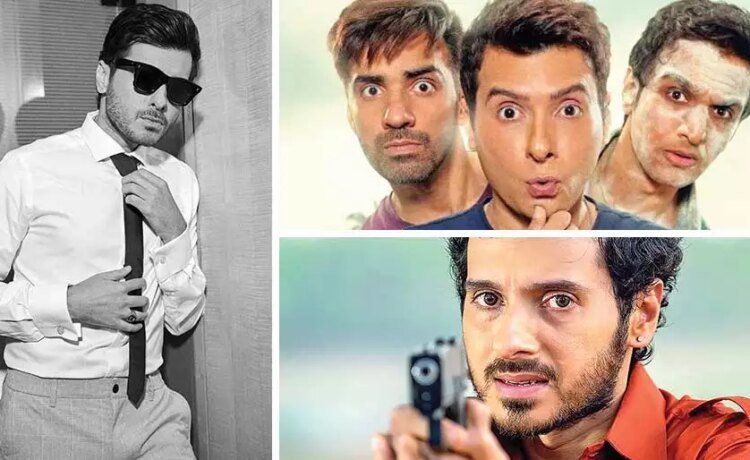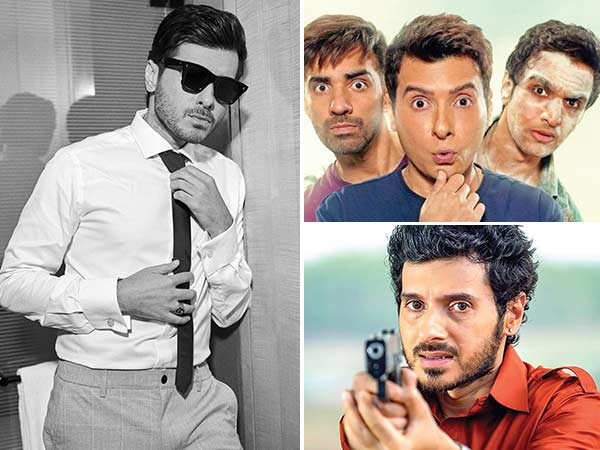
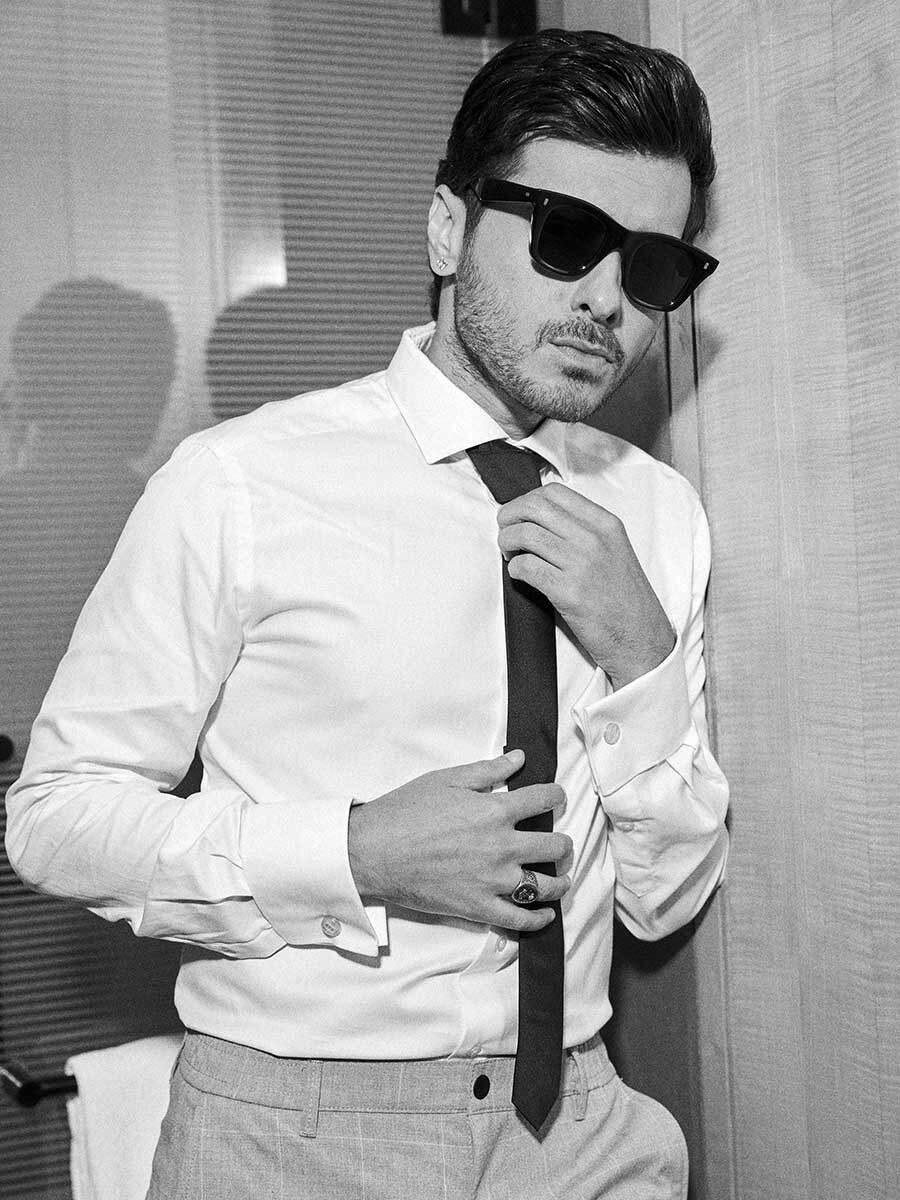
Did you draw inspiration from personal experiences or make any special preparations to play Dodo in Madgaon Express?It was an extremely well-written character. The credit goes to director Kunal Kemmu. The problem was that it was too much of a character to support. The primary preparation for any actor is an understanding of the character. If you understand that character, half of your work is done. That understanding emerges when you refrain from judging a character. When I read or prepare for my characters, I avoid making any judgements. You must first understand how they are, who they are, and see them as a whole before beginning to build brick by brick.
It took me a long time to grasp the core of Dodo. This guy simply misses his friends. He simply wants to be with them. He is a loner at the end of the day. I found the idea of him being a loner very appealing. I would describe Dodo as someone who is alone and stuck in time.Your camaraderie with Avinash Tiwary and Pratik Gandhi on screen was unbelievable…We were a mad bunch of people coming together. Everyone was also a thorough professional. We had a lot of fun while filming, but as they say, ‘comedy is a serious business.’ I believe that doing comedy requires you to be constantly on your toes. After the shoot, we would hang out and go to nice restaurants and places. This unwinding also helped us prepare for the following day.Were there any scenes or moments in the movie that were particularly difficult to shoot?
The Kombdi gang appearance was one of them. That was difficult because you didn’t want to play a female in a stereotypical way. I wanted to make it both respectful and comical.What are your top three scenes from the movie?
Yes, there is the Kombdi madness. I would also choose Pratik’s cocaine scene. It’s definitely one of the highlights. Also, don’t forget Kanchan Kombdi and Mendoza’s chemistry. I also enjoyed the scene where they say, “Tasha kehti hain yahan pe aajao, maine sab theek kar liya hai.” And my character goes to hug Tasha. There are these goons in the background, and Dodo is completely unaware of their existence. He is in his own wonderland. I believe the film could have also been titled ‘Dodo in Wonderland’. Furthermore, the train scene in the climax, in which you initially believe that these guys are in trouble, but later realise that this was planned to get the bad guys arrested.
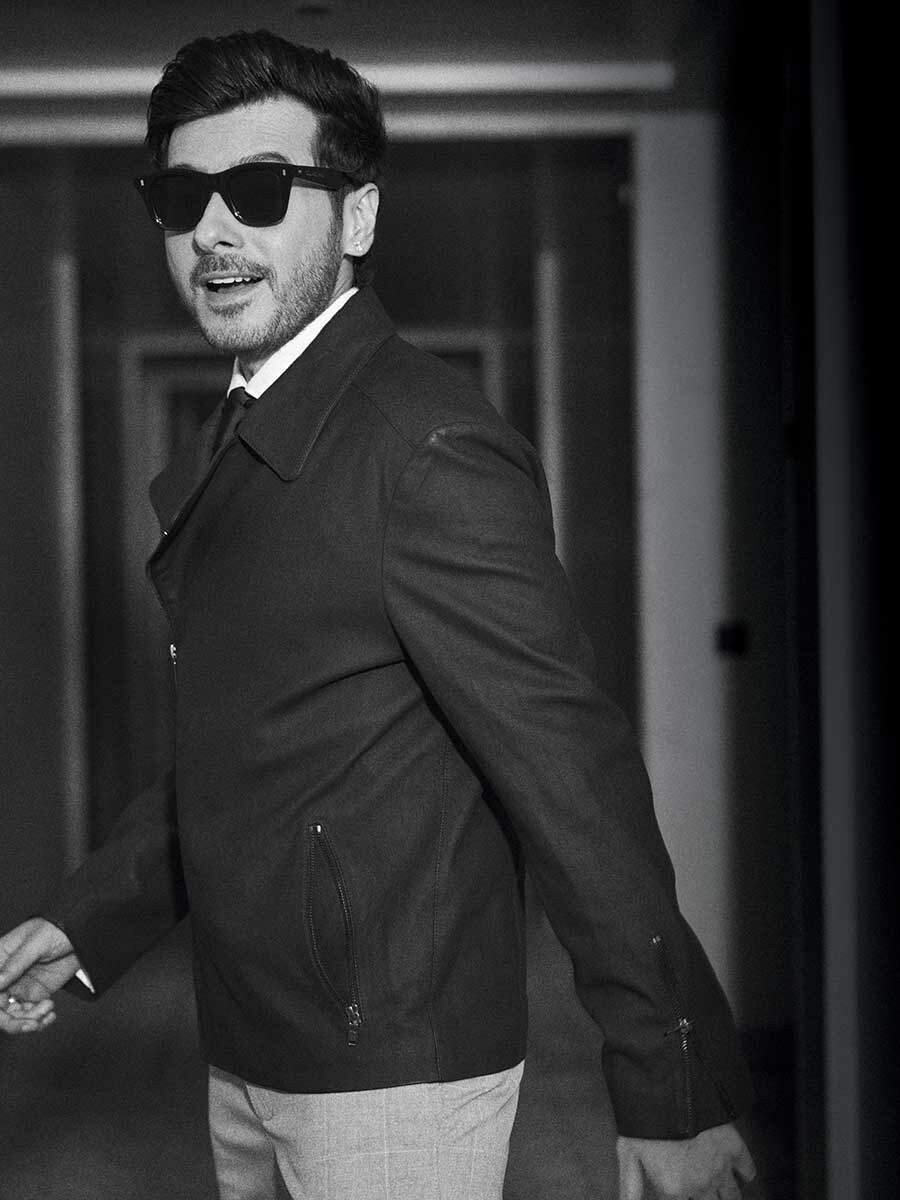
Have you ever encountered a Dodo-like character in real life?
I have gone on several Goa trips with my friends. Fortunately, I’m not the ‘Dodo’ type, but I know someone in my circle who is capable of throwing an oddball. So yes, I am aware that Dodos exist in the real world. He’s not just a fictitious character.While Madgaon Express was an out and out comedy, Mirzapur was an intense drama. How was it working with performers like Pankaj Tripathi, Rasika Dugal, and Vikrant Massey? What was the vibe off-screen?It was simply fantastic. Everyone in Mirzapur was familiar with their jobs. We’d meet and jam. Not only are the actors important in Mirzapur, but so are the direction, camera, and production teams because everyone was involved. We all had a lot of fun making that show. The show had a lot of drama, action, darkness, and intensity, so you needed people who were on the same page. I am very grateful to the Mirzapur cast and crew for understanding Munna. They used to watch and let me perform the way I wanted to. So, it was a wonderful collaboration between all departments. I would describe it as a very well-thought-out and meticulously planned production.
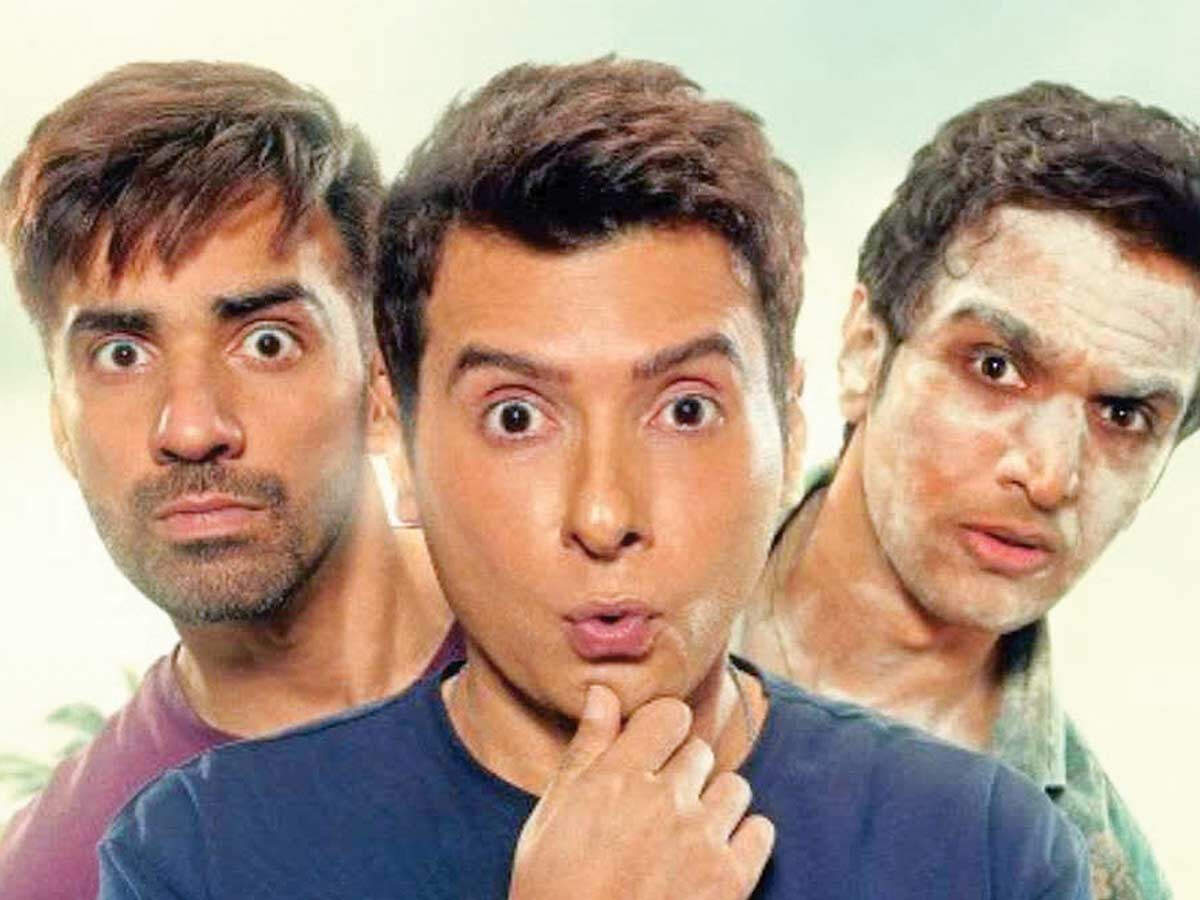
What drew you to play Munna Tripathi in Mirzapur? Because he has such a complex personality, it must have required extensive preparation…
I was drawn to the character because, as you mentioned, it was one of the most complex I’d ever seen or encountered. It may sound philosophical or spiritual, but there are some characters who truly speak to you. Munna was one of such characters. He didn’t feel like a dark guy, a wealthy brat, or a man with a lot of power. For me, he was a troubled soul. That attracted me to him. I wanted to figure out why that guy was so troubled. Munna was not enjoying his behaviour or what he was doing, according to my interpretation of the character. I could tell there was a lot of emptiness in his life. Everything he did seemed to be for the sake of appearing to be someone to his father. He wanted to make his dad proud. Hence, the famous dialogue, “Papa, proud feel honge aap.”Did playing him influence your behaviour in real life?Definitely. There were characteristics of it. My wife may have mentioned a few instances in which I began to behave in a particular manner in certain situations. She noticed a change in my trigger points. I was getting triggered in a specific way. That was the first thing. I always believe that when you stop playing a character, you realise how much it affects you in real life. It works like ear pressure. Munna Tripathi’s role had an impact on me. It was special in some ways, but I don’t think it should be overly romanticised.Liquid from Pyaar Ka Punchnama too was a difficult character like Munna…Liquid was emotionally unstable. But with a pure heart. He was a naive guy who attempted to portray himself as a know-it-all. The challenge for me in preparing for Liquid was justifying that character’s emotional graph. It was difficult to explain his emotional range. It required a great deal of preparation. You really have to work on the character’s likeability so that people say Liquid is great no matter what. So that was very important to me as it was my first film.You’ve already done web series, films, and short films. How do you prepare for each of them?
I would say the basic preparation is the same. It does not really change. The acting style changes because you use a different gait as an actor. In theatre, you perform for a live audience, whereas in film, you perform for a camera. You must understand the lenses, angle, and magnification. Aside from that, there’s not much difference. When you perform in a theatre, your projection becomes slightly amplified. In terms of camera, it provides the advantage of allowing you to delve deeply into the nuanced aspects of your performance.
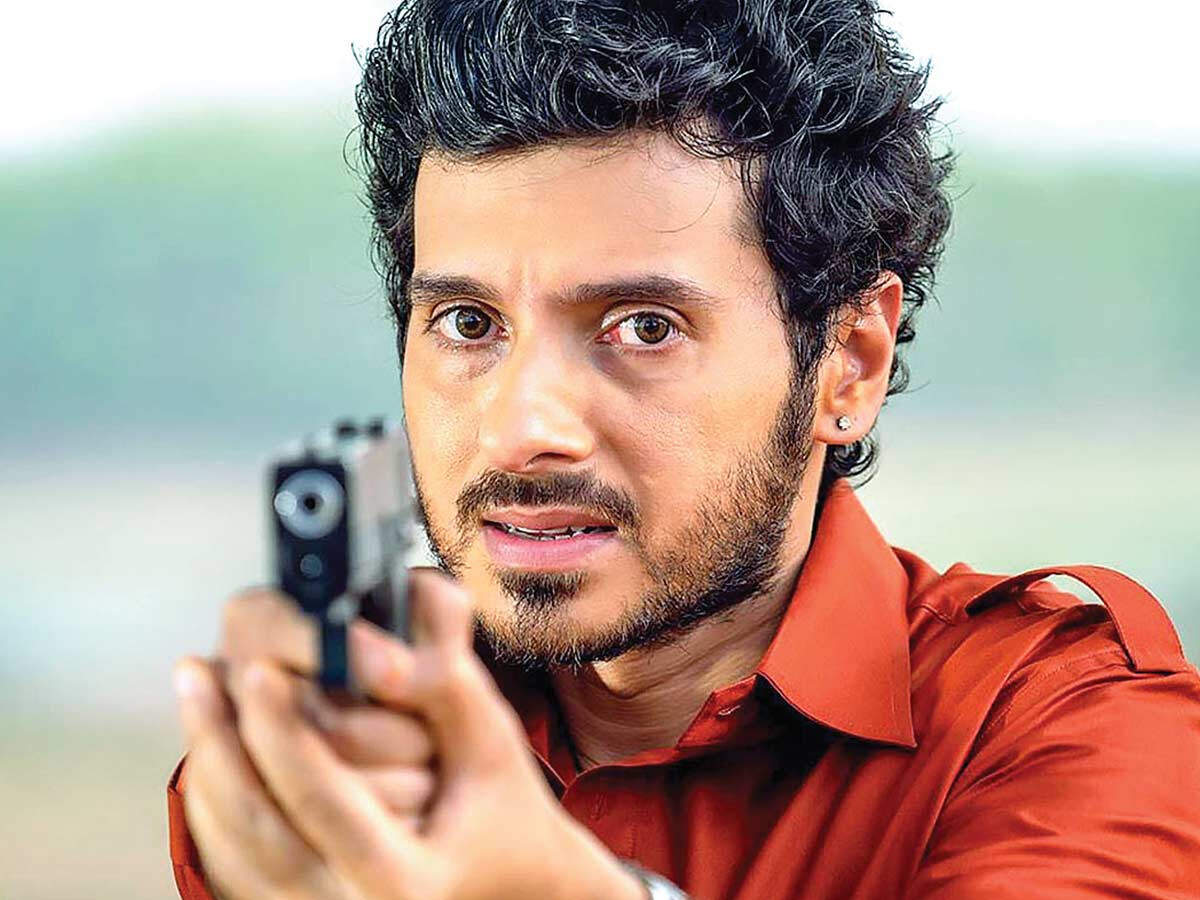
Do you have a preferred medium for performing?My first love is theatre. The high you experience there is on a different level. It’s quite different to perform in front of a live audience. The smell of the auditorium, the entrance from the wings, catching the first light on your face, the warmth of that light—all of this is magical. The entire experience is incredibly magical. However, I enjoy performing in films and in front of the camera.Who do you see as your idols?I looked up to various actors and watched their performances. When I was very young, I saw Balraj Sahni saab perform. I was mesmerised. Towards the mainstream, I used to watch Dev Anand saab, who had a completely different acting style. Then Dilip Kumar and Amitabh Bachchan struck a delicate balance between the commercial and artistic sides of cinema. I used to admire Farooque Shaikh, Naseeruddin Shah, Om Puri, Amrish Puri, and many other great actors. My Hollywood idols are Al Pacino, Robert De Niro, and Sean Penn. Rather than one person, I believe that multiple performances inspire you.What draws you to a specific role?The setting of a story is important. Everything becomes exciting when you get to see a new world. It’s like going to a new location. Following that, the story. I enjoy delving into the kind of story we are telling in that setting. Then comes the character. There are several other factors that contribute to filmmaking’s collaborative nature. It is also crucial to understand who your producers are. The producer is an essential cog in the wheel. It essentially represents a producer’s vision for a project. A director conveys the vision, but it is a producer who brings everyone together.Which of your characters is the most similar to Divyendu in terms of personality?I’m still looking for the character who is closer to me. I don’t think I’ve ever played a character who is more like me.Looking ahead, what’s next for you? Which genre would you like to explore?I completed a project called Tatkal, which is based on the Bihar Tatkal ticket scam. I’ve also done a psychological thriller. I completed a project for Manish Malhotra as part of his first production. Radhika Apte also stars in it. I’m content moving forward. I really want to do horror next. It is something I haven’t looked into yet. It would be interesting to explore horror.
Next Story

